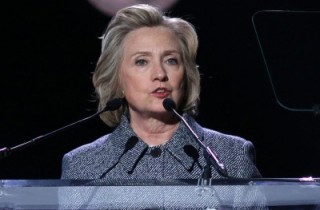
“No reasonable prosecutor would bring a case,” Comey concluded. “This investigation was done honestly, competently and independently.”
“We did not find clear evidence that Clinton intended to violate the law,” Comey said. “There is evidence that they were extremely careless.” Comey did have sincere concerns with the way that Clinton and her staff handled the emails. He said FBI agents discovered 7 emails chains that contained top secret information at the time they were sent and received. In fact, he said that she used her private email server while she traveled in risky regions.
The office of inspector general at both the State Department and intelligence community referred the matter to the FBI during the summer of 2015. The IG reported finding classified material in emails Clinton turned over to the State Department. The FBI then began its investigation into the possible mishandling of classified materials.
The FBI Director essentially became the face of the investigation after news broke last week that Attorney General Loretta Lynch and former President Bill Clinton met privately for 30 minutes at a Phoenix airport. The firestorm surrounding that meeting forced Attorney General Lynch to address the issue during a public appearance in Aspen last Friday. The Attorney General announced that she planned to accept the FBI’s recommendations but refused to recuse herself from the case to ensure that she would continue to receive briefings on the matter. Attorney General Lynch’s spokeswoman further confused matters after the announcement, telling The New York Times the Attorney General still had “ultimate responsibility for any decision [in the case].”
To say this is good news for Clinton would be an understatement. Especially in light of the recent inspector general’s report that concluded she violated State Department policies and the Federal Records Act by using her private e-mail account. That report also indicated that Clinton seemingly ignored several warnings about the dangers of using unsecured mobile devices to send e-mails and contradicted many of her past statements about the appropriateness of using a private e-mail system.
The announcement on Tuesday almost certainly paves the wave for Clinton to finally seal the Democratic nomination. While she managed to avoid legal jeopardy, events over the past week have likely given Clinton’s political opponents the ammunition needed to continue making an issue of the private server (and the investigation) through the general election campaign.